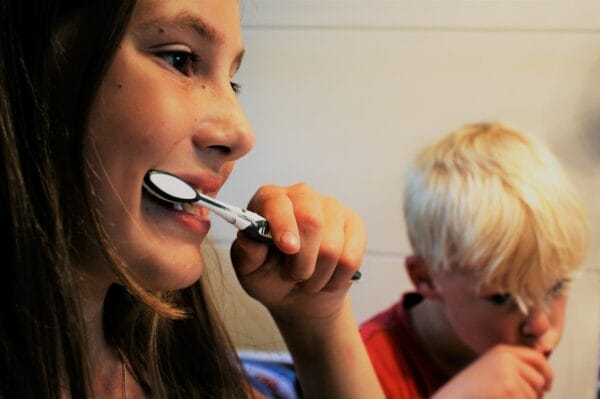Therapeutic Parenting: Skills, Strategies, and Helpful Resources
Parenting is an intricate dance of nurturing, teaching, and guiding a child through the stages of life. For children who have experienced trauma, loss, or attachment issues, traditional parenting methods may not always be effective. This is where therapeutic parenting comes into play—a specialized approach designed to aid healing and foster a sense of security and attachment.
In this article, we will delve into what therapeutic parenting is, the skills involved, strategies for implementation, and resources like books that can guide you on this journey.

What is Therapeutic Parenting?
![]()
Therapeutic parenting is a highly empathetic and sensitive form of caregiving that focuses on the emotional and psychological needs of children, particularly those who have faced adverse experiences. It is a nurturing and structured approach that helps children feel safe and understood, allowing them to form secure attachments and build self-esteem. This method is not solely for adoptive or foster parents but can be beneficial for any caregiver looking to deepen their connection with a child and support their emotional health.
Key Skills in Therapeutic Parenting
![]()
To effectively engage in therapeutic parenting, certain skills are paramount. These skills underpin the approach and provide a foundation for healing:
- Empathy: Understanding and sharing the feelings of the child is crucial. It helps the child feel seen and heard.
- Patience: Children who have experienced trauma may take longer to respond or trust, necessitating immense patience.
- Consistency: Providing a predictable environment helps the child feel secure and learn to trust.
- Self-regulation: Caregivers must manage their own emotions to maintain a calm and supportive presence.
- Flexibility: Adapting to the unique needs of each child is important, as there is no one-size-fits-all approach.
Therapeutic Parenting Strategies
![]()
Implementing therapeutic parenting involves a variety of strategies that cater to the child’s emotional and developmental needs. Here are some therapeutic parenting strategies that can be applied:
- Creating a Safe Environment: Establishing a space where the child feels physically and emotionally secure is the first step.
- Building Trust Through Routine: Regular routines and clear expectations help minimize anxiety and build trust.
- Validating Feelings: Acknowledging and affirming the child’s feelings reinforces their sense of self-worth and fosters emotional healing.
- Setting Boundaries with Love: While boundaries are necessary, they should be communicated and enforced with empathy and understanding.
- Using Play: Play is a powerful tool for connection and can help children express and process emotions.
- Encouraging Open Communication: Fostering an environment where the child feels comfortable sharing their thoughts and feelings is essential.
Therapeutic Parenting Examples
![]()
Real-life examples can illustrate how therapeutic parenting can be applied in everyday situations:
- Case Study 1: A child throws a tantrum after losing a game. Instead of scolding, the parent acknowledges the child’s disappointment and talks about how to cope with these feelings.
- Case Study 2: A foster child has difficulty sleeping in a new home. The parent establishes a bedtime routine that includes reading and quiet music, creating a sense of calm and predictability.
- Case Study 3: An adopted child acts out when feeling insecure. The parent remains calm, reassures the child of their love, and discusses the behavior once the child is calm.
Each of these examples demonstrates therapeutic parenting skills like empathy, patience, and consistency, which are tailored to the child’s emotional needs and developmental stage.
Implementing Therapeutic Parenting in Daily Life
![]()
To weave therapeutic parenting into your daily routine, consider these tips:
- Start Small: Introduce one or two strategies at a time to avoid feeling overwhelmed.
- Be Reflective: Take time to reflect on what works and what doesn’t, and adjust your approach accordingly.
- Seek Support: Connect with other therapeutic parents for advice and encouragement.
- Practice Self-Care: Caring for a child with complex needs can be demanding. Ensure you take care of your own emotional and physical well-being.
Remember, therapeutic parenting is a journey, not a destination. It requires continuous learning and adaptation.
Recommended Therapeutic Parenting Books
![]()
For those keen on deepening their understanding of therapeutic parenting, a plethora of books are available. Here are some highly recommended therapeutic parenting books:
- “The Connected Child” by Karyn Purvis, David Cross, and Wendy Lyons Sunshine: This book is a staple for parents looking to build bonds of affection and trust with their children.
- “Parenting the Hurt Child” by Gregory Keck and Regina Kupecky: The authors offer insights into the challenges of parenting traumatized children and provide practical advice.
- “Building the Bonds of Attachment” by Daniel A. Hughes: Hughes’s work focuses on the importance of emotional attunement and connection in healing.
- “Therapeutic Parenting in a Nutshell” by Sarah Naish: A concise guide, this book offers a straightforward look at the principles and practices of therapeutic parenting.
Reading these books can help caregivers understand the principles of therapeutic parenting and offer guidance on implementing these practices effectively.
Challenges and Considerations
![]()
While therapeutic parenting can be incredibly rewarding, it also comes with its own set of challenges. Caregivers may face emotional exhaustion, feelings of inadequacy, and the difficult task of managing their own triggers while caring for a child with complex needs. It is essential to acknowledge these challenges and seek professional support when necessary. Joining support groups or consulting with therapists who specialize in attachment and trauma can provide additional support and resources.
Frequently Asked Questions
![]()
Can all parents use therapeutic parenting strategies?
Yes, any parent can use therapeutic parenting strategies. It’s especially beneficial for adoptive or foster parents of children with challenging behaviors due to their past experiences, but the principles can support any parent-child relationship.
How is therapeutic parenting different from traditional parenting?
Therapeutic parenting focuses more on the underlying reasons behind a child’s behavior, rather than just the behavior itself. It uses empathy and support to help the child heal from past trauma, which is often different from traditional parenting that might emphasize discipline and rules.
What are some key principles of therapeutic parenting?
Key principles include being empathetic, providing unconditional love, maintaining consistency and structure, setting clear boundaries, and using praise and rewards to reinforce positive behaviors. It’s also about being patient and giving the child time to heal and develop trust.
Why is consistency so important in therapeutic parenting?
Consistency helps children feel secure because they know what to expect. For children who’ve had chaotic or traumatic pasts, predictability in their daily life can be very comforting and can help build trust in their caregivers.
How do I handle discipline in therapeutic parenting?
Discipline in therapeutic parenting is more about teaching than punishing. It involves setting clear boundaries and consequences, but also understanding the child’s emotional state and helping them learn to regulate their emotions and behavior.
What should I do if my child has a meltdown?
Stay calm and provide a safe space for your child. Offer comfort without overwhelming them. Once they’re calm, talk through what happened and discuss how to handle emotions differently in the future. Remember, meltdowns are often a result of past trauma, so be patient and understanding.
How can I help my child build self-esteem?
Praise their efforts, not just achievements. Encourage them to try new things, and be there to support them whether they succeed or fail. Help them identify their strengths and provide opportunities for them to use them.
What if I feel overwhelmed by therapeutic parenting?
It’s normal to feel overwhelmed sometimes. Seek support from other therapeutic parents, professionals, or support groups. Take time for self-care, and remember that taking care of yourself is also an important part of being able to care for your child.
Can therapy help my child alongside therapeutic parenting?
Yes, professional therapy can be very beneficial for children who have experienced trauma. It can provide them with additional support and coping strategies, and it can also be helpful for parents to learn more about how to support their child’s healing process.
Conclusion: The Heart of Therapeutic Parenting
![]()
At its core, therapeutic parenting is about creating a healing relationship with a child. It is a commitment to understanding the unique needs of a child who has experienced trauma and providing them with the emotional support they need to thrive. By utilizing therapeutic parenting skills and strategies, caregivers can help foster resilience, self-esteem, and healthy relationships in their children.
If you are considering this approach, remember that it is a process that requires patience, time, and often, professional guidance. But the positive impact it can have on a child’s life is immeasurable. With the right support, resources like therapeutic parenting books, and a compassionate heart, therapeutic parenting can be a transformative experience for both the child and the caregiver.
As you embark on this journey, take it one step at a time, celebrate the small victories, and know that your efforts are laying the groundwork for a child’s brighter, more secure future.




